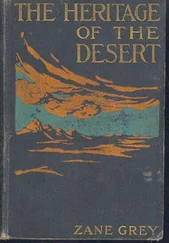Julius Birge - The Awakening of the Desert
Здесь есть возможность читать онлайн «Julius Birge - The Awakening of the Desert» — ознакомительный отрывок электронной книги совершенно бесплатно, а после прочтения отрывка купить полную версию. В некоторых случаях можно слушать аудио, скачать через торрент в формате fb2 и присутствует краткое содержание. Жанр: foreign_language, foreign_antique, foreign_prose, на английском языке. Описание произведения, (предисловие) а так же отзывы посетителей доступны на портале библиотеки ЛибКат.
- Название:The Awakening of the Desert
- Автор:
- Жанр:
- Год:неизвестен
- ISBN:нет данных
- Рейтинг книги:5 / 5. Голосов: 1
-
Избранное:Добавить в избранное
- Отзывы:
-
Ваша оценка:
- 100
- 1
- 2
- 3
- 4
- 5
The Awakening of the Desert: краткое содержание, описание и аннотация
Предлагаем к чтению аннотацию, описание, краткое содержание или предисловие (зависит от того, что написал сам автор книги «The Awakening of the Desert»). Если вы не нашли необходимую информацию о книге — напишите в комментариях, мы постараемся отыскать её.
The Awakening of the Desert — читать онлайн ознакомительный отрывок
Ниже представлен текст книги, разбитый по страницам. Система сохранения места последней прочитанной страницы, позволяет с удобством читать онлайн бесплатно книгу «The Awakening of the Desert», без необходимости каждый раз заново искать на чём Вы остановились. Поставьте закладку, и сможете в любой момент перейти на страницу, на которой закончили чтение.
Интервал:
Закладка:
"Hello, Deacon," I shouted, and the old gentleman slowly roused himself from his slumbers and after rubbing his eyes looked out upon the pathless prairie. "Well, by George," he remarked, passing to the extreme limit of his profane vocabulary, "I must have been asleep." His horses being halted, I explained to him how he happened to be discovered. Our little train was already out of sight and he promptly admitted that he was unable to tell from which side of the trail his horses had turned; and the tracks of his light wagon not being distinct he could hardly have retraced his course. The deacon was invariably calm and self-possessed and with a keen sense of the humorous in every situation. He therefore gravely stated that it seemed providential that he should be reclaimed from his wanderings in time for lunch. Having been escorted back to the train, it was decided that in the future he should not drive at the tail end of the procession, as he had done previous to that time.
The night of the 16th was glorious with a waxing moon. It was my turn on guard for the watch until midnight. As I sauntered off toward where the stock was picketed, with my rifle on my shoulder, my attention was called to the incessant yelp of the prairie wolves. In my timid excursions into Greek mythology I had read something of Orpheus and his lyre. The recollection of the alleged power of his melodies over animate and inanimate objects, led me quietly to enter our wagon and take out the violin with which I had occasionally whiled away an hour; and seated on the ground I drew the bow to the best of my ability. The night was so still that the sound was doubtless carried a great distance and evidently reached the sensitive ears of numerous wolves on their nocturnal prowl. The response was certainly tremendous. In a few minutes I had an enthusiastic audience in the not far distance, which might have been regarded as highly complimentary had it not been quite so demonstrative. Strangely enough, the music failed to calm their spirits until I had ceased for a time to torture the catgut. Whenever the sound of the instrument reached them, the din of yelps was returned from all points of the compass. The prairie wolves are simply scavengers and though possibly subject to pleasurable emotions (probably otherwise in the instance just given) yet their chief concern is to supply their ravenous appetites. Like vultures they scent the carrion from afar, and as it was Paul's week to cook they may have sniffed the aroma of his burnt bacon wafted to their acute olfactory nerves through the still air of the night. After the camp is vacated, and the wolves can find no food in a more advanced state of decomposition than the few morsels which the camper leaves behind, they will then regale themselves on the scraps left around the abandoned campfire.
On the following day, after crossing many deep gullies, we struck the Platte River trail from Omaha, which follows near the southern bank of that stream.
CHAPTER VI
The Oregon Trail
WE were now upon the most frequented thoroughfare of western transcontinental travel, known as the old Oregon trail, and this course was pursued for the succeeding two weeks. It was the route taken by Major Stephen Long, who in 1820 explored this valley as far west as the junction of the North and the South Platte. It also appears to have been followed by Captain E. D. Bonneville and his company in 1832, and in 1834 and 1839 by Whiteman and Spalding, the missionaries to Oregon; also by Colonel John C. Fremont in 1842, when on his first exploring expedition.
While these western trails may not have been the scenes of conflict in which numbers were engaged on any one occasion, nevertheless, for two generations they have doubtless been the theatre of a greater number of encounters with Indians than have ever occurred in any other equal area of our country. The reasons for this become apparent on a moment's thought. The numerous tribes that occupied this vast territory were in every sense of the word warriors, having had experience in their peculiar mode of warfare in frequent conflicts between the tribes. The majority were expert horsemen, which peculiarly fitted them for guerrilla tactics. The California, Pike's Peak, and Mormon settlements formed nuclei for a rapidly increasing population, the supplies for which were transported chiefly by this thoroughfare across the plains, which until a later date remained the undisputed home of these nomadic tribes.
The travel across this broad stretch of Indian territory was in the main confined to a very few well defined pathways through an open, unprotected country on which the strength of a traveling outfit could be fairly estimated by the enemy concealed in the many hiding places in ravines intersecting the prairie, so that freighter and emigrant were exposed to unexpected forays at any moment, and especially when the relations with the Indians were not entirely friendly. It was exceedingly difficult, at times, for the traveler to ascertain with certainty what was the present spirit of any tribe. An unprovoked wrong inflicted by some one reckless white man upon an Indian was liable to be avenged by an attack on some train, the owners of which were ignorant of the inciting cause. In like manner, the insult of a white by an Indian led to the conclusion that the tribe was hostile and on the war-path, and the freighters governed themselves accordingly. The reckless destruction of buffaloes by the whites was the cause of intense bitterness on the part of the Indians; and moreover, the ill-adjusted relations between our War Department and the tribes, to which we may make future reference, were not always favorable to a friendly attitude on the part of the Indian.
This Oregon trail, however, as far as it followed the main channel of the Platte River, had now become a well-traveled, natural road. Because of the fact that the country remote from this stream was arid and devoid of water courses, the Platte valley was the only practicable route for freighting, except the one far south along the tributaries of the Arkansas.
On my first opportunity I took a stroll back from the river to the bluffs, which were three or four miles distant, and which mark the boundary between the valley and the higher lands to the south, with a view to ascertaining if there were any evidence of civilization beyond. The air was wonderfully clear, dry, and hot. There was a marked contrast between this country and the prairies of Eastern Nebraska. The thin grass was parched and brown, and the surface of the valley was barren and apparently lifeless. A solitary black buzzard, poised upon a carcass which I passed, added but little of attractive life to the inanimate scenery.
Observing the skeletons and carcasses of numerous buffaloes it occurred to me to count those which I might pass on my walk to the foothills. The number observed near my path reached nearly two hundred. There are but few objects that could be more suggestive of desolation than were these huge, bleaching skeletons. The killing of the greater number of these buffaloes was doubtless a result of the vandalism of so-called sportsmen, who regarded even the crippling of a few of these noble animals as a laudable achievement, even though the buffaloes were shot while in a compact herd of a thousand or more. Hundreds of thousands of their bodies were scattered over the country, especially near the river valleys of Kansas and Nebraska. From personal observation, it was evident that a great number of them were not killed by the Indians, because the skins, which were of value for their own uses, and for traffic with the whites, in many instances had not been removed.
Later in these records reference will be made to the vast numbers of these valuable animals, which we saw further South. In the interesting work of Colonel Henry Inman, statistics are given concerning the number of buffaloes killed in the thirteen years 1868 to 1881. He states that the facts as written were carefully gathered from the freight departments of the railroads, which kept a record of the bones that were shipped; and the quantities were verified from the purchase of the carbon works at various points from which was paid out the money for the bones. These figures show that during the period named there was paid out $2,500,000 for buffalo-bones gathered on the prairies of Kansas alone; and at the rate paid this sum represented the skeletons of more than thirty millions of buffaloes, a number that seems almost incredible. Sheridan, Custer, Sully, and Inman report having ridden in 1868, two years later than my visit, for three consecutive days through one continuous herd which must have contained many millions. The writer had a similar experience in the autumn of 1866. The wanton destruction of the last of these magnificent and valuable animals is but a single illustration of the folly and improvidence of the American people in dealing with their magnificent natural resources, and their disregard for the comfort and the needs of future generations.
Читать дальшеИнтервал:
Закладка:
Похожие книги на «The Awakening of the Desert»
Представляем Вашему вниманию похожие книги на «The Awakening of the Desert» списком для выбора. Мы отобрали схожую по названию и смыслу литературу в надежде предоставить читателям больше вариантов отыскать новые, интересные, ещё непрочитанные произведения.
Обсуждение, отзывы о книге «The Awakening of the Desert» и просто собственные мнения читателей. Оставьте ваши комментарии, напишите, что Вы думаете о произведении, его смысле или главных героях. Укажите что конкретно понравилось, а что нет, и почему Вы так считаете.











